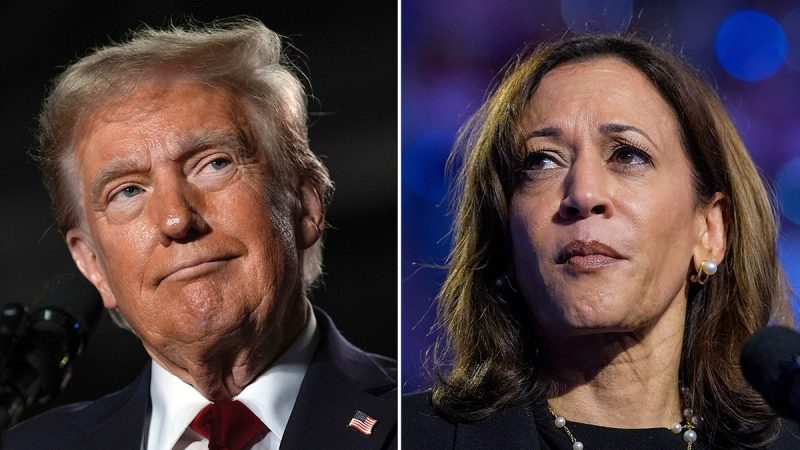Trump camp confident based on early voting, while Black leaders say Harris is struggling


At a time when we’re all deluged with conflicting polls and statistical ties, Donald Trump’s campaign is unusually confident.
The Kamala Harris operation also sees reason for optimism, with news that late deciders are breaking her way by more than 10%. But she still casts herself as the underdog. Her ‘SNL’ appearance doesn’t change that; nor does Trump saying that RFK’s plan to remove fluoride from the water, a major public health advance, ‘sounds okay to me.’
Most media folks, either publicly or privately, believe Trump will win, even as the anti-Trumpers beg their followers to turn out for the VP – such as MSNBC’s Nicolle Wallace asking her ex-boss George W. Bush to publicly back Harris.
The climax of the campaign seems built around a gaping gender gap–with Kamala doing far better among women and Trump much better among men.
The view from the Trump camp is that registration figures favor Republicans, based on mail-in voting, in the battleground states that will decide the race. Nearly half the country has already voted.
Take the crucial commonwealth of Pennsylvania. In 2020, Democrats had a 7.5% advantage, and that’s now shrunk to a 3-point edge.
What’s more, just 39% of Democrats who have voted there so far are men, compared to 49% among Republicans.
Democratic strategist Tom Bonier, who appears on MSNBC, says the Pennsylvania electorate is much more Republican, and much more male, than last time.
Harris needs a huge turnout in Philadelphia to carry the state, and numerous news reports say she’s still struggling to win over some Black men.
In Wisconsin, the view from Trump World is that in-person voting (which tends to favor the former president) is outnumbering mail ballots (which lean Democratic). Trump’s strength is among male, white and rural voters. So, as in the case of Philly, Harris must do very well in Milwaukee and Madison to carry the state.
Michigan, which Rep. Debbie Dingell recently told me is a toss-up, remains an enigma, because it doesn’t track party registration. So the ballgame there may turn on how well Harris does in Detroit.
The Trump camp sees similar advantages in such swing states as Georgia and North Carolina, where public polling is close but would be a bigger stretch for a Harris win. The election really turns on the three Blue Wall states.
Maybe Harris should have picked Josh Shapiro?
In one key state after another, local Black leaders are quoted on the record as saying they’re worried about warning signs in their community:
Politico: ‘The city of Milwaukee is trailing the rest of the state by about 7 percent both in its mail-in return rate and in overall registered voter turnout. It’s a warning sign, even some Democrats privately say, for Harris as her campaign looks to run up the score with urban and suburban voters to overcome Wisconsin’s rural counties.’
Capital B, Atlanta: The turnout of Black voters in Georgia ‘has dropped from more than 29 percent’ on the first day of early voting ‘to about 25 percent…That’s the bad news for Harris…
‘Elected leaders and political observers say Democrats looking for a guaranteed win in statewide office races in Georgia usually need to hit a 30 percent Black turnout rate.’
Charlotte Observer: ‘As of Wednesday, Black voters had cast 207,000 fewer ballots compared with four years ago — a drop of almost 40 percent.’
‘I am worried about turnout in Detroit. I think it’s real,’ said Jamal Simmons, a former Harris aide, told ABC.
A sunnier view is offered by this Politico piece, which says that public polls appear to be undercounting Harris’ support.
The story says that ‘shy Trump voters’ – who don’t want to tell pollsters who they’re supporting–are a thing of the past, given the aggressive nature of his campaign.
Instead, many ‘forgotten’ Harris voters are missed by the polls, especially Republicans frustrated with their own party: Nikki Haley voters.
Citing a national survey, Politico says 66% of those voting for Haley in the primaries backed Trump in 2016, dropping to 59% four years ago and an estimated 45% this time. ‘Meanwhile, their support for the Democratic presidential nominee has nearly tripled from only 13 percent supporting Hillary Clinton in 2016 to 36 percent indicating an intent to vote for Kamala Harris.’
To which I say: Who the hell knows?
We’re at the point now before tomorrow’s election that pollsters are analyzing the polls to figure out which ones are off. And–here comes the cliché – it all depends on turnout. Despite raising a billion bucks, if some of Harris’ potential supporters stay home, that sinks her candidacy.
The scenarios favored by the Trump team rest largely on party registration, not polls that have missed the mark in the last two cycles.
That explains why the former president is more confident, even as he asks his advisers whether they really believe he’s going to win.











